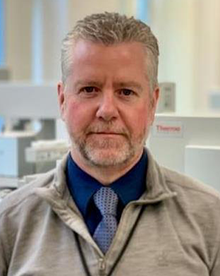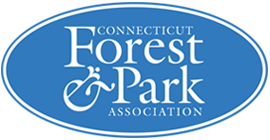
Jason C. White, PhD,
|
Putting Science to Work for Society: Helping to Protect Connecticut’s Environment During the Pandemic A keynote presentation by Jason C. White, PhD, Director, Connecticut Agricultural Experiment Station
The Connecticut Agricultural Experiment Station (CAES) was established in 1875 and is the oldest agricultural experiment station in the United States. The institute is a relatively small but separate agency of the State of Connecticut. While the primary mission of the CAES is research, educational and outreach programs are also an important function of the agency. These programs help promote the use of new research findings to solve emerging agricultural, public health and environmental problems in Connecticut. The identification and preservation of local woodlands and other important habitats are major goals of many municipal commissions. Unfortunately, these tracts are becoming increasingly susceptible to a range of threats including poorly regulated development, climate change impacts and newly emerging destructive invasive insects including the Asian longhorned beetle, Emerald ash borer, and Spotted lanternfly. During his keynote presentation Dr. White will review the many environmental research programs being conducted by the CAES to protect local habitats, including tracking invasive insect pests along with efforts to identify and newly emerging plant diseases. Use of Integrated Pest Management to control insect and plant diseases with minimum use of pesticides will be discussed. He will describe CAES efforts that contribute to public health including surveillance of diseases transmitted by ticks and mosquitoes including Lyme disease, human babesiosis, West Nile disease and Eastern Equine Encephalitis. He will also discuss research into novel and sustainable approaches to increase agricultural productivity to minimize food insecurity. Recent CAES efforts to study an alternative surveillance for SARS-CoV-2 virus activity, in conjunction with Yale University School of Public Health, will be described. Dr. White will also discuss how Connecticut conservation commissions can contribute to important environmental research even during the ongoing COVID-19 pandemic.
Jason C. White, PhD Biography Jason lives in Prospect, Connecticut with his wife Michelle and six children.
|
|||||||||||
(Two Tracks, Three Sessions, Five Workshops):
|
||||||||||||
Workshop Descriptions
|
||||||||||||
Session 1 (10:15–11:25 am):A1. “Updates from the Connecticut Invasive Plant Working Group (CIPWG)” Charlotte Pyle, PhD, Co-chair, Connecticut Invasive Plant Working Group (CIPWG) Rose Hiskes, MS, Co-chair, CIPWG & diagnostician with the Connecticut Agricultural Experiment Station (CAES) Emmett Varricchio, Co-chair, CIPWG Bryan Connolly, PhD, Assistant Professor of Biology, Eastern Connecticut State University and CIPWG member Joshua Tracy, Invasive Species Management Technician and CIPWG member
In 1997, the Connecticut Invasive Plant Working Group (CIPWG) formed as an ad hoc consortium of individuals hailing from environmental organizations, educational institutions, municipal and state agencies, NGOs, the green industry, garden clubs and the general public. Our mission is to promote awareness of invasive plants and the use of native or non-invasive ornamental alternatives. The working group collaborates and shares information on the presence, distribution, ecological impacts, and management of invasive plants affecting Connecticut and the region. CIPWG offers technical advice to the State Invasive Plants Council and posts Council's information on the CIPWG website. Although CIPWG's website is housed at UConn, CIPWG is not an arm of UConn. These updates will involve short presentations by five CIPWG members: Why keep working on invasive plants? (Charlotte Pyle); Porcelainberry update (Rose Hiskes); New invaders on the horizon (Bryan Connolly); Drones for mapping invasive plant infestations (Joshua Tracy); CIPWG's invasive plant management calendar (Emmett Varricchio); and New projects for CIPWG's Native Alternatives Subcommittee (Pyle).
B1. “Wetlands Law – The Decade in Review” Janet Brooks, Attorney at Law, LLC with Darcy Winther, Connecticut Department of Energy and Environmental Protection (DEEP) As we end the second decade of the 21st century, we will compare what occurred in the second decade with what happened in the first decade. We will also look at changes in the statute, regulations and developments in the case law. Agency permit denials overturned by the courts due to lack of substantial evidence, thorny exemptions – all the greatest hits of the 21st century!
Session 2 (11:30 am–12:40 pm):
A2. “Understanding Connecticut’s State Water Plan” Denise Savageau, Environmental Professional Louis Rosado Burch, Connecticut Program Director, Citizens Campaign for the Environment (CCE)
In 2019 the Connecticut General Assembly adopted the State Water Plan that was prepared by the Water Planning Council. This workshop will provide an overview of the Plan and our state’s water resources, challenges for maintaining water quantity and quality in a changing climate, how the Plan is intended to protect and manage these critical resources including during periods of drought, and steps being taken now to implement the Plan. Included will be a discussion of the role of municipalities, including Conservation and Inland Wetland Commissions, in implementation of the Plan.
B2. “2020 Wetlands Law & Regulations Update with Question & Answer Session” Mark Branse, Halloran & Sage, LLP Janet Brooks, Attorney at Law, LLC with Darcy Winther, Connecticut Department of Energy and Environmental Protection (DEEP)
These wetlands attorneys has been brought back again by popular demand to keep you current with the law. Due to the ongoing COVID-19 pandemic there are not legal cases from this year to review. Are you enjoying conducting virtual meetings as much as we enjoy attending them? Let’s discuss! Come ready to pose questions as you try to stump the attorneys!
Session 3 (12:45–1:00 pm):
A3. “Ecotype Plants-Why the Local Seed Matters and What Conservation Measures Can Help” Darryl Newman, Co-Owner Planters' Choice Nursery
Darryl Newman of Planters' Choice Nursery will discuss why the Ecotype Project was created by the Northeast Organic Farming Association of Connecticut (CT NOFA) and their partners and how that relates to the importance of addressing a critical shortage of habitat and food for pollinators, which is caused by the disconnecting of pollinator corridors through development. A particular focus will be made on how initiatives of different scales can help move this important endeavor forward.
Darryl Newman co-owns Planters' Choice alongside his father Chuck, the nursery's founder. He is a University of Maryland graduate with a degree in Landscape Management. He worked as a Project Manager for prominent landscape design/build firms in the Washington DC area before returning to Planters’ Choice in 2004. Darryl is a Past President of the Connecticut Nursery and Landscape Association and the 2019 Award of Merit Winner. Being blessed with an incredibly gifted and supportive staff who allows him enough time, he has given presentations for the New York Botanical Garden, UCONN, Naugatuck Valley Community College, University of Maryland, CTASLA, CT Northeast Organic Farming Association, the Connecticut Nursery and Landscape Association, the Connecticut Groundskeepers Association, the Connecticut Tree Protective Association, the Connecticut Urban Forest Council, the Connecticut Tree Wardens Association, the Connecticut Environmental Council, the Connecticut Invasive Plant Working Group and the Ecological Landscape Alliance.
|
||||||||||||
Schedule for the Day:
8:45–9:00 am
Welcome & CACIWC Business Meeting
9:00–10:10 am
Keynote Speaker & Discussion
10:10– 10:15 am
Break 1
10:15–11:25 am
Session 1 workshops
11:25– 11:30 am
Break 2
11:30–12:40 am
Session 2 workshops
12:40– 12:45 pm
Break 3
12:45–1:00 pm
Session 3 workshop
1:00 am
Conference ends
For information on our Annual Meeting, please email us at: AnnualMtg@caciwc.org
Thank you to our Sponsors
Patron Sponsor
* * * * * * * * *
Great Horned Owl Sponsor
* * * * * * * * *
Barred Owl Sponsor
* * * * * * * * *
Barred Owl Sponsor
* * * * * * * * *
Screech Owl Sponsors
* * * * * * * * *







